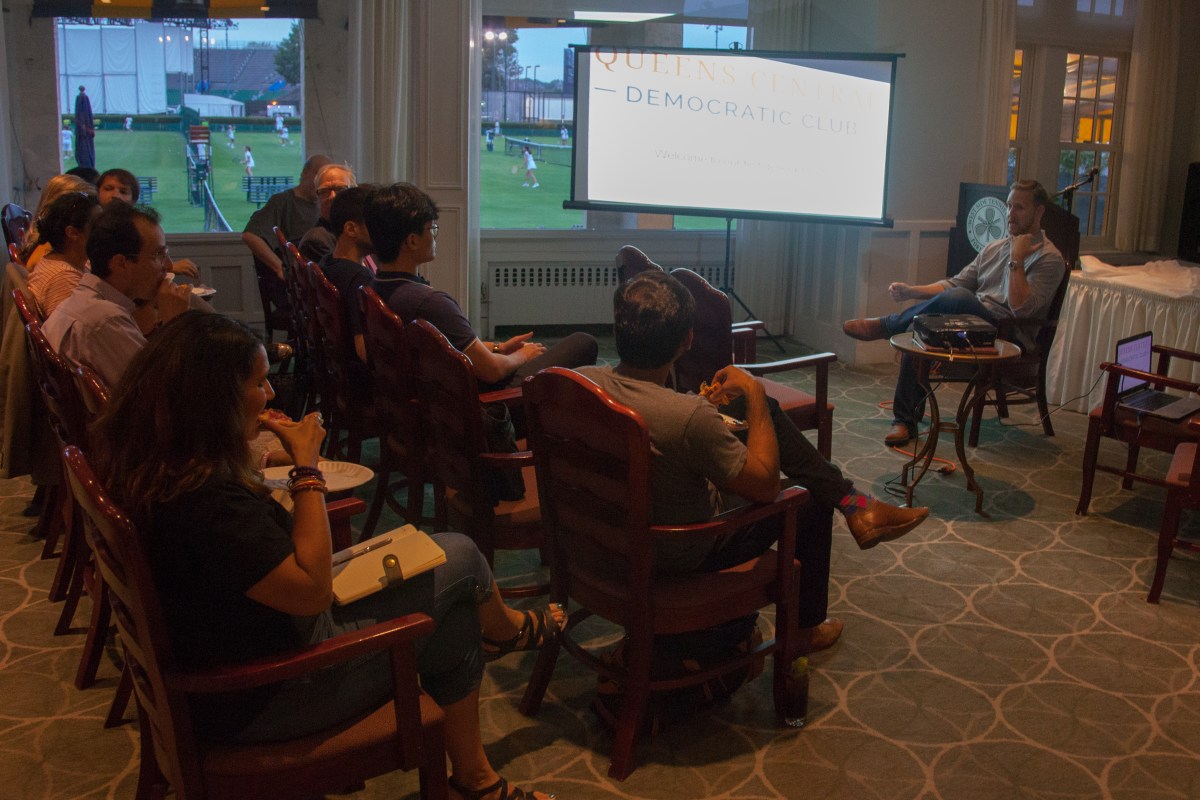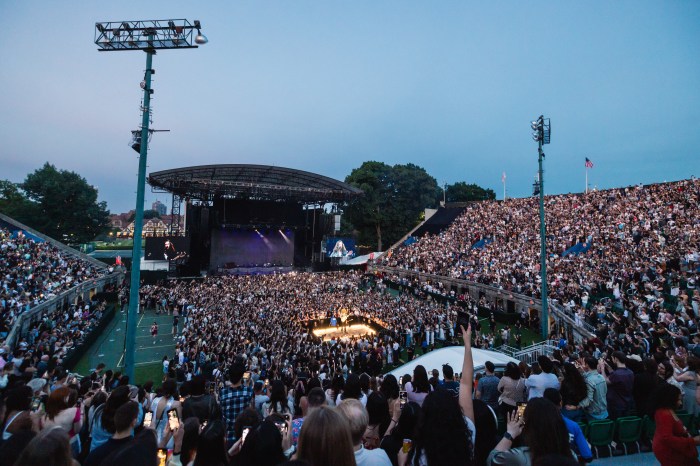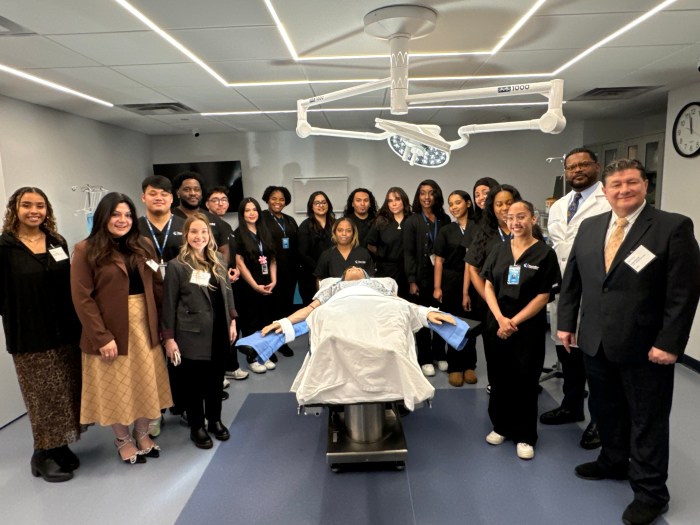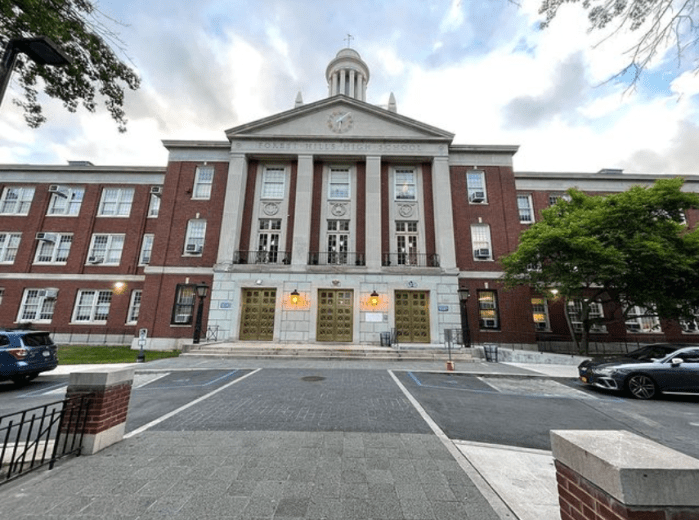Reform is sweeping the small ‘d’ democratic institutions of Forest Hills — its new democratic club is the latest wave of the movement.
Last week a slate of six new officer positions who want renewed community involvement were elected to Community Board 6. In July, the Queens County Committee for All (QCC4All) — a group containing a sizable contingent of Forest Hills county committee members — pushed Congressman Greg Meeks to reform their role in the county party.
Now, Assemblyman Andrew Hevesi, sensing the winds of change blowing through his district, has spearheaded the Queens Central Democratic Club (QCDC), a new organization that will ditch the established top-down structure of most the borough’s democratic clubs.
The new club held its first public meeting on Monday, Sept. 23, over pizza and drinks at the posh West Side Tennis Club, where Hevesi spoke to about 50 interested constituents about his ambition to create a club where he’s not in charge.
“I don’t like the political operation with the elected officials who’s doing what I’m doing now and standing up here and talking at you. That’s not what I want to create. As a matter of fact, what I’m trying to do is create a structure where I am out of the way,” Hevesi said.
The norm in Queens’ political clubs is to build a structure revolving around Assembly District Leaders, a role often taken on by elected officials who have the power within the County Party to vote for judicial nominations and elect the county leader.
Hevesi, who currently serves as District Leader for the 28th Assembly District, explained that he plans not to run in 2020, leaving the position open to someone else.
For the QCDC, he intends to set up a board structure of seven members, including positions of the president, vice president and the political director, that are elected by the club. It will be open registered Democrats from anywhere in the city. Though Hevesi pledged not to run as a board member, he said he would retain control over selecting two of the board positions: the treasurer and head of social media.
Hevesi picked these two roles intentionally. After having lived through the ethics scandals that his father Alan Hevesi ran into as former City Comptroller, Hevesi said that he doesn’t play around with financial ethics issues. Nor does he want the club to have a wild card social media mouthpiece. Treasurer will be taken by Kevin Wisniewski and head of social media by Alexa Arecchi, both Hevesi staffers.
“After Trump got elected a lot of people in the neighborhood who were not politically yet became politically active, but we need to capture that into a forum that let’s their voices resonate and really lets them design how this club operates,” Hevesi said, describing the guiding force behind this structure.
Another goal will be to give more weight to County Committee members, the often overlooked body whose members number more than 2,000 and represent a geographical area of only a few blocks each. The QCDC will provide a forum for any of these representatives present to address the club for three minutes each at every meeting.
This suggestion is a direct response to a suggested Congressman and Chairman of the Queens Democratic Party Greg Meeks. Meeks said that he sees Democratic club participation as the principal way to gaining influence in the county party when he was confronted by a group of QCC4All members who felt that they had been ignored in July.
Hevesi added that although the QCDC represents a split from Forrest Hills current dominant Democratic organization, the Geraldine Ferraro club, the separation signals no bad blood between him and that club’s leader Councilwoman Karen Koslowitz. Meeks also has sanctioned the new club.
Though he has the blessing of the County Party establishment, Hevesi also emphasized the risks he was taking by creating a grassroots political group.
“I’m also creating a structure that hypothetically could be used to run somebody against me. If this club endorses somebody else, OK. That’s the process,” he said.
Mingling with other members after the meeting ended, Forest Hills resident Matt Mandell said he fits the type of a progressive activated by Trump’s election. Mandell, who also has started working with the left-wingers in One Queens Indivisible, was encouraged by the meeting. He said that in-person gatherings remain a vital form of organizing, especially in the era of internet activism.
“I think if you have a group of this many people in a room talking to an elected official that is more powerful than anything you can post on social media,” he said.





































